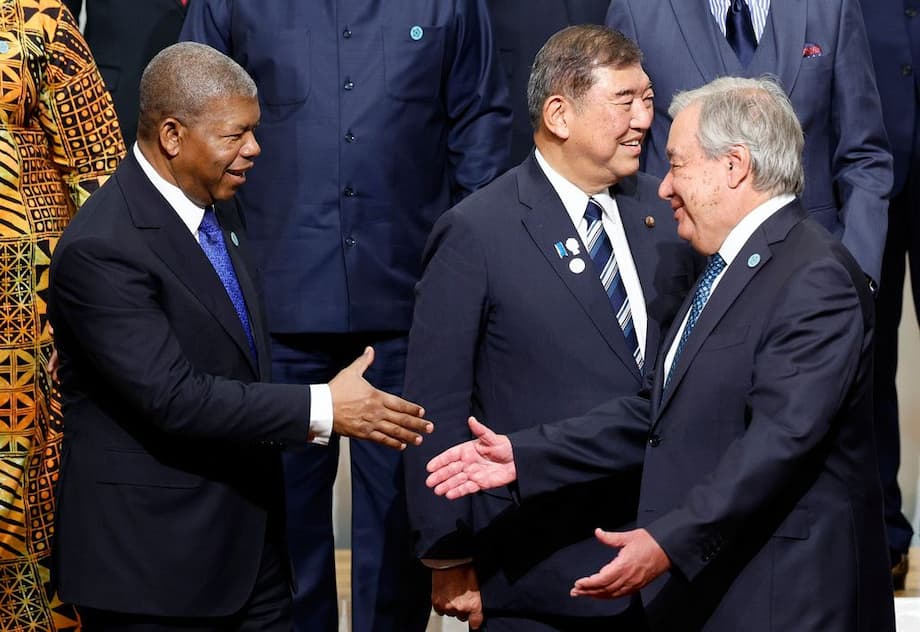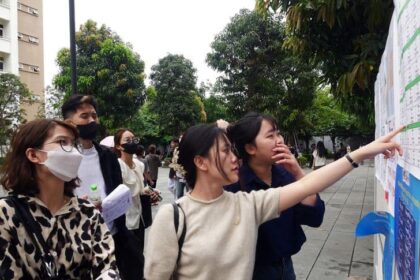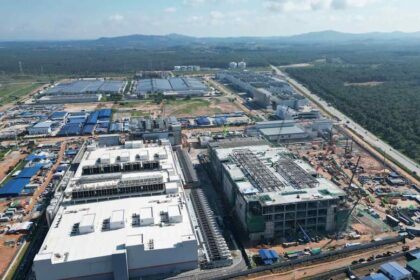Japan’s Bold New Vision for Africa: Investment, Innovation, and Partnership at TICAD 9
At the Ninth Tokyo International Conference on African Development (TICAD 9), held in Yokohama, Japan, Prime Minister Shigeru Ishiba unveiled an ambitious strategy to redefine Japan’s relationship with Africa. With a pledge of $5.5 billion in loans, a sweeping initiative to train 30,000 artificial intelligence (AI) experts, and a proposal for a new Indian Ocean–Africa economic zone, Japan signaled its intent to become a leading partner in Africa’s next chapter of growth and transformation. The summit, attended by leaders from 49 African countries, global organizations, and the private sector, marks a pivotal shift from traditional aid to investment-driven, co-created development.
- Japan’s Bold New Vision for Africa: Investment, Innovation, and Partnership at TICAD 9
- What Is TICAD and Why Does It Matter?
- Japan’s $5.5 Billion Pledge: Addressing Africa’s Financial Hurdles
- AI Training and Digital Transformation: Building Africa’s Future Workforce
- The Indian Ocean–Africa Economic Zone: Connecting Continents for Growth
- From Aid to Investment: A Strategic Shift in Japan’s Africa Policy
- Empowering Youth and Women: Human Capital at the Core
- Peace, Stability, and Global Governance: Africa’s Voice on the World Stage
- Competition and Cooperation: The Geopolitics of Africa’s Development
- Broader Implications: Africa’s Role in the Global Economy
- In Summary
What Is TICAD and Why Does It Matter?
TICAD, launched in 1993, is a multilateral forum led by Japan and co-organized with the United Nations, African Union Commission, UNDP, and the World Bank. Its core philosophy is African ownership and international partnership. Over the decades, TICAD has evolved from a donor-driven aid conference to a platform for business, investment, and innovation. This year’s summit, themed “Co-create Innovative Solutions with Africa,” reflects a new era where Japan and Africa work together as equal partners to address challenges and seize opportunities.
The significance of TICAD 9 is heightened by global shifts: as U.S. engagement in Africa wanes and China’s influence grows, Japan is positioning itself as a reliable, long-term partner. The summit’s outcomes will shape not only Africa-Japan relations but also the broader landscape of international cooperation on the continent.
Japan’s $5.5 Billion Pledge: Addressing Africa’s Financial Hurdles
One of the summit’s headline announcements was Japan’s commitment of $5.5 billion in loans, arranged through the African Development Bank. This funding targets critical areas such as infrastructure, electrification, and industrialization—sectors essential for Africa’s sustainable development. The loans are designed to help African countries tackle mounting debt burdens and access the affordable capital needed for transformative projects.
Angola’s President and African Union Chair, João Lourenço, highlighted the urgency of this support, stating that many African nations face “persistent barriers and limited, complex access to international financing.” He explained that high-risk borrower ratings often make African countries ineligible for low-cost capital, which is vital for investment in infrastructure and technological advancement.
“The African continent continues to face persistent barriers and limited, complex access to international financing … many African countries have been rated as high-risk borrowers, making them barely eligible for low-cost capital. Yet such capital is absolutely essential for investment in infrastructure, electrification, industrialization, and technological advancement.”
Japan’s approach, in contrast to some other global actors, emphasizes responsible lending and partnership, aiming to avoid the debt traps that have plagued some African borrowers in the past.
AI Training and Digital Transformation: Building Africa’s Future Workforce
Perhaps the most forward-looking aspect of Japan’s TICAD 9 agenda is the commitment to train 30,000 AI experts across Africa over the next three years. This initiative, part of the Japan Africa Co-Creation for Industry framework, is designed to accelerate digital transformation, foster job creation, and empower Africa’s burgeoning youth population.
Prime Minister Ishiba underscored the importance of human capital development in his remarks:
“The development of human resources in new fields such as digital-related industries, including AI, and creative industries will be one of the foundations for accelerating future growth.”
The AI training program will involve partnerships with African universities, the United Nations Development Program, and Japanese companies. The goal is not only to impart technical skills but also to support entrepreneurship and job placement, ensuring that trained experts can drive innovation within their home countries.
This focus on digital skills is timely. Africa’s population is expected to surpass 2.4 billion by 2050, with a median age of just 24.4 years. Harnessing this demographic dividend requires equipping young Africans with the tools to participate in the global digital economy. Japan’s initiative aims to bridge the digital divide and position Africa as a hub for tech-driven growth.
The Indian Ocean–Africa Economic Zone: Connecting Continents for Growth
Another major proposal at TICAD 9 is the creation of an Indian Ocean–Africa economic zone. This initiative seeks to deepen integration between Africa, India, the Middle East, and other Indian Ocean economies. By enhancing trade, investment, and connectivity, the zone aims to unlock new opportunities for African businesses and foster regional value chains.
This vision aligns with the African Continental Free Trade Area (AfCFTA), which Japan strongly supports. By facilitating cross-border trade and investment, Japan hopes to help Africa realize its potential as a major market, supplier, and investment destination. The economic zone also dovetails with Japan’s “Free and Open Indo-Pacific” strategy, which emphasizes resilient institutions, connectivity, and human resource development.
From Aid to Investment: A Strategic Shift in Japan’s Africa Policy
TICAD 9 marks a clear shift in Japan’s approach to Africa—from traditional aid to investment and business-driven development. This transition is evident in the growing presence of Japanese companies on the continent. Between 2015 and 2024, the number of Japanese or Japanese-funded company sites in Africa grew by 40%, reaching 948 sites in 40 countries.
Japanese firms are increasingly involved in projects that address social challenges, such as using drones and AI to combat malaria or providing off-grid electricity. The focus is on creating sustainable business models that generate local employment and foster innovation.
This strategy contrasts with the approaches of other major players. As the U.S. has scaled back its aid programs and China has ramped up lending, Japan’s model emphasizes partnership, capacity-building, and mutual benefit. Kei Yoshizawa, senior adviser at the Japan International Cooperation Agency (JICA), noted that Japan’s aid encourages self-reliance and has led to the creation of new businesses in Africa.
Empowering Youth and Women: Human Capital at the Core
Empowering Africa’s youth and women is a central pillar of Japan’s TICAD 9 agenda. With Africa’s population set to remain the youngest in the world for decades, investing in education, skills, and entrepreneurship is seen as essential for inclusive growth.
Japan’s programs, such as the ABE Initiative, provide African youths with opportunities for education and internships in Japan, fostering long-term ties and knowledge transfer. The new AI training initiative builds on this foundation, targeting high-growth sectors and supporting the emergence of a new generation of African innovators and leaders.
The Yokohama Declaration, the summit’s concluding document, emphasizes the need for investment in human capital, technology transfer, and the empowerment of youth and women. It calls for strengthening public-private partnerships and supporting regional integration to create a more inclusive and resilient society.
Peace, Stability, and Global Governance: Africa’s Voice on the World Stage
Beyond economics, TICAD 9 addressed issues of peace, stability, and global governance. African leaders and international partners discussed the importance of African-led solutions to conflict, institution-building, and addressing the root causes of instability.
United Nations Secretary-General António Guterres used the summit to call for overdue reforms to the global system:
“Africa must have a stronger voice in shaping the decisions that affect its future. That includes long overdue reform of the Security Council, where, incredibly, Africa has no permanent member … and an overhaul of today’s unjust and unfair international financial architecture that must enhance African representation and endorse a strong African voice in the decisions being made.”
The Yokohama Declaration reaffirms commitments to multilateralism, UN Security Council reform, nuclear disarmament, and responsible global governance. It also stresses the need for climate finance, energy transition, and disaster risk reduction—areas where Africa’s vulnerabilities are acute and where international cooperation is vital.
Competition and Cooperation: The Geopolitics of Africa’s Development
TICAD 9 takes place against a backdrop of intensifying global competition for influence in Africa. With the U.S. reducing its aid footprint and China expanding its economic presence, Japan’s strategy is to offer a distinct model based on partnership, innovation, and mutual benefit.
China’s recent move to set tariffs on imports from 53 African countries to zero, and Russia and India’s efforts to deepen ties with Africa, underscore the continent’s growing importance on the world stage. Japan’s challenge is to differentiate itself by focusing on quality investment, technology transfer, and support for African-led solutions.
Japan’s message at TICAD 9 is clear: it seeks to move beyond “Made in Japan” to “Made with Japan,” co-creating solutions with African partners and fostering a new era of collaboration.
Broader Implications: Africa’s Role in the Global Economy
Africa’s economic potential is immense. With a population projected to reach 3.8 billion by 2100 and a median age far younger than other regions, the continent is poised to become a major driver of global growth. In 2024, direct investments into Africa hit a record $97 billion, and the region’s economic growth outpaced the global average.
However, challenges remain. Poverty, inequality, conflict, and climate change continue to pose significant obstacles. Access to affordable finance, technology, and skills will be critical for unlocking Africa’s potential. Japan’s initiatives at TICAD 9 aim to address these gaps, but success will depend on sustained partnership, African ownership, and the ability to adapt to evolving needs.
In Summary
- Japan pledged $5.5 billion in loans to Africa at TICAD 9, focusing on infrastructure, electrification, and industrialization.
- A major initiative will train 30,000 AI experts across Africa in the next three years, supporting digital transformation and job creation.
- The summit proposed a new Indian Ocean–Africa economic zone to boost regional integration and trade.
- TICAD 9 marks a shift from aid to investment, with Japan emphasizing partnership, innovation, and private sector engagement.
- Empowering youth and women, supporting African-led solutions, and reforming global governance were key themes.
- The Yokohama Declaration outlines commitments to sustainable growth, peace, climate resilience, and inclusive development.
- Japan’s approach aims to differentiate itself amid rising competition from China, India, and other global actors.












